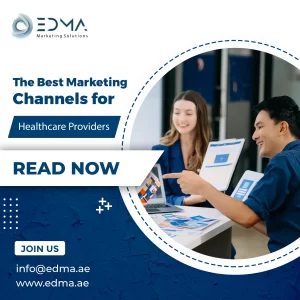In the ever-competitive healthcare industry, finding effective ways to reach potential patients is essential. One of the most impactful digital strategies is Pay-Per-Click (PPC) advertising. This targeted approach helps drive qualified traffic to your website by placing ads across search engines, social media, and other platforms.
In this guide, we’ll explore how PPC can transform your healthcare marketing strategy and share actionable tips for running successful campaigns. 💻
What Is Pay-Per-Click (PPC) Advertising for Healthcare? 💡
PPC is an online advertising model where advertisers pay a fee every time someone clicks on their ad. It’s an auction-based system where you bid on keywords related to your services. When users search for these keywords, your ad has the chance to appear in the results.
Platforms like Google Ads, Facebook Ads, and Bing Ads support PPC, giving healthcare providers the flexibility to choose where and how they appear online.
Why PPC Advertising Matters for Healthcare Providers 🏥
Here are a few compelling reasons why PPC is vital for healthcare marketing:
- Immediate Visibility: Unlike SEO, PPC provides near-instant exposure—your ad can go live and appear in searches almost immediately.
- Highly Targeted Traffic: You can target users based on search intent, location, demographics, or even specific behaviors.
- Local Reach: Since healthcare services are typically location-specific, PPC’s geographic targeting is ideal for attracting local patients.
- Budget Control: You decide how much to spend daily or monthly—and you only pay when someone clicks your ad.
👉 This makes PPC a measurable, flexible, and results-driven tool for medical practices.
How to Set Up a Successful Healthcare PPC Campaign 📊
1. Choose the Right PPC Platform 💻
Different platforms offer unique advantages:
- Google Ads: Perfect for capturing people actively searching for healthcare services.
- Facebook Ads: Great for reaching users based on interests, age, or health concerns.
🔎 Consider your target audience’s behavior when selecting your platform.
2. Conduct Strategic Keyword Research 🔑
Successful campaigns start with strong keywords. Use tools like Google Keyword Planner to find relevant search terms patients use. For example:
- “Knee pain treatment in Dubai”
- “Spine surgery specialist near me”
✅ Also, identify long-tail keywords—they’re often less competitive and more specific.
3. Create Compelling and Clear Ad Copy 🖥️
Effective ads Advertising for Healthcare should:
- Highlight unique benefits (e.g., expert care, fast appointments)
- Include a strong Call-To-Action (CTA), such as “Book Now” or “Call for a Consultation”
📝 Keep the message focused and relevant to your target audience’s needs.
4. Optimize Your Landing Pages 💻
The user’s journey doesn’t end with a click. Ensure your landing page:
- Matches the ad’s promise
- Is mobile-friendly and fast-loading
- Has a clear CTA and service-specific content
📈 Well-optimized landing pages can drastically improve your conversion rate.
5. Set a Budget and Bidding Strategy 💰
Define your budget and choose how you want to bid:
- Cost-Per-Click (CPC): Pay each time someone clicks your ad
- Cost-Per-Conversion: Pay based on actual results (e.g., appointment booked)
💡 Start small, then scale as you analyze performance and ROI.
6. Monitor, Analyze, and Optimize 📈
Once your campaign is live, track performance regularly. Key metrics include:
- Click-Through Rate (CTR)
- Conversion Rate
- Cost Per Acquisition (CPA)
Use tools like Google Analytics or the ad platform’s dashboard to adjust your keywords, bids, or ad copy as needed.
📊 Optimization is an ongoing process that keeps your campaigns profitable.
Key Benefits of PPC for Healthcare Practices 🚀
When done correctly, PPC offers several strategic advantages:
- Higher Conversion Rates: Targeted ads attract users with high intent to book or call.
- Actionable Analytics: Measure everything from clicks to conversions for better decision-making.
- Stay Competitive: If other clinics in your area are using PPC, you can’t afford to stay invisible.
- Boost Local SEO: Combining PPC with local SEO helps you dominate both paid and organic results.
Common PPC Mistakes to Avoid 🚫
Even small missteps can lead to wasted ad spend. Avoid these pitfalls:
- Ignoring Negative Keywords: Exclude irrelevant terms to avoid unqualified traffic.
- Not Optimizing for Mobile: A mobile-friendly experience is crucial, as many users search from their phones.
- Relying Only on Broad Keywords: Broad terms may attract clicks but not conversions. Focus on specific, intent-driven phrases.
✅ Smart PPC is all about precision and refinement.
Final Thoughts
PPC advertising is a powerful tool for healthcare practices aiming to grow their patient base. By combining smart targeting, strategic keyword use, and compelling messaging, you can run campaigns that generate real, measurable results.
📌 Remember to track performance regularly, refine your approach, and stay up to date with platform updates to stay ahead.
👉 For more expert healthcare marketing insights, visit the EDMA Blog. 💼






